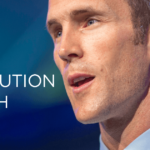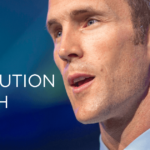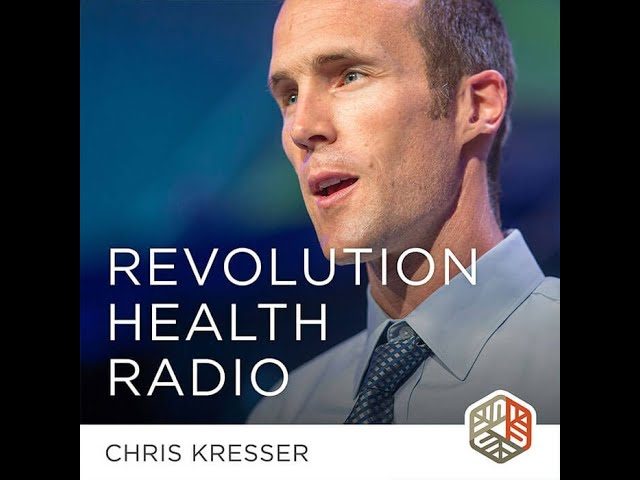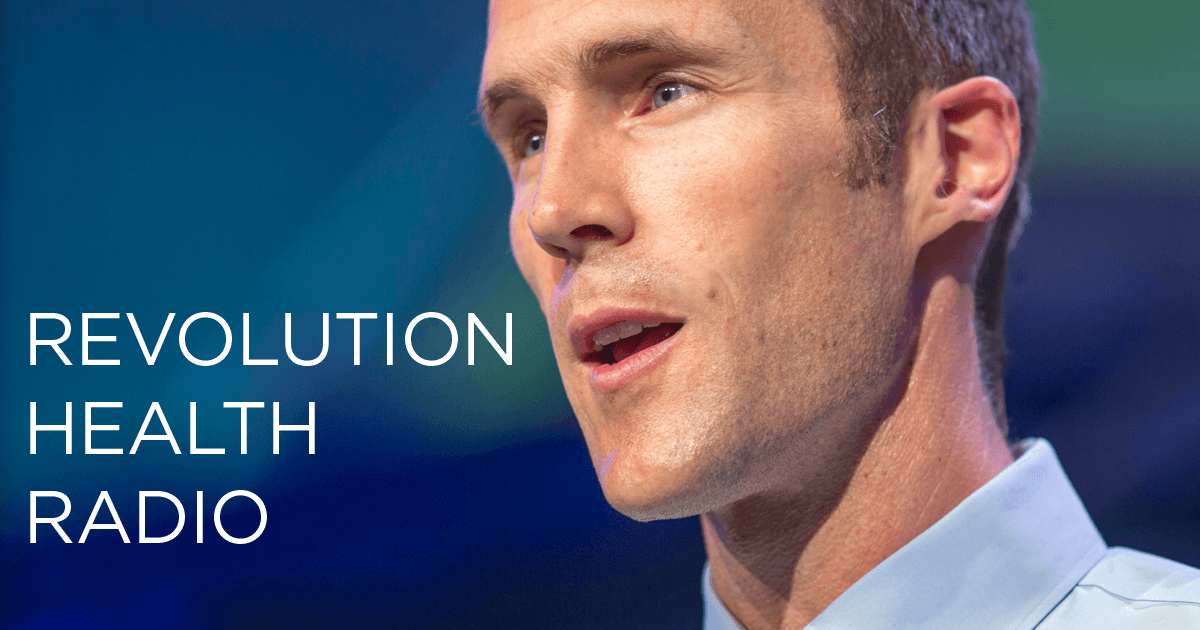
RHR: How to Naturally Prevent and Treat Osteopenia and Osteoporosis

In this episode, we discuss:
- The definition of and the difference between osteopenia and osteoporosis
- Whether calcium supplements actually work
- The risks associated with calcium supplements, including heart disease, cancer, kidney stones, and more
- Which nutrients influence and regulate calcium metabolism, including vitamins D and K2, collagen, magnesium, and silica
- Other considerations for bone health, including inflammation, gluten intolerance, the gut microbiota, weight-bearing exercise, stress, smoking, and excessive drinking
- How to prevent osteopenia and osteoporosis and improve bone mineral density naturally
Show notes:
[embedded content]
Hey, everyone, Chris Kresser here. Welcome to another episode of Revolution Health Radio. Recent estimates suggest that almost 50 million Americans now suffer [from] osteopenia or mild bone loss. In postmenopausal women, the numbers are even higher. About 54 percent of women in that demographic have osteopenia, and an additional 30 percent have osteoporosis, which is more significant bone loss. By age 80, that trend predictably shifts in favor of osteoporosis, with 27 percent of women with osteopenia and 70 percent of women with osteoporosis.
Despite this, there are no good treatments for osteopenia or osteoporosis in conventional medicine, and fractures are one of the leading causes of premature death in seniors. There’s a saying in medicine, “break your hip, die of pneumonia.” This means that, in the elderly, a fracture can often lead to prolonged time in a hospital bed, where fluid can pool in the lungs, cause pneumonia, and then cause death in people who are susceptible. Making matters worse, there are so many myths and misconceptions about how to prevent and treat bone loss. For example, you’ve probably heard that taking calcium supplements is important for maintaining healthy bones. It turns out that supplemental calcium not only doesn’t prevent bone loss, [but] it may [also] increase the risk of heart disease, kidney stones, and other problems. In this podcast, I’m going to set the record straight on what causes osteopenia and osteoporosis and tell you how to prevent bone loss naturally without drugs. Ready? Let’s dive in.
What Are Osteopenia and Osteoporosis?
Let’s start with a definition of terms. Osteopenia refers to a decrease in bone mineral density below normal reference values, yet not low enough to meet the diagnostic criteria for osteoporosis. Clinicians assess bone mineral density using a T score, which is a numerical value determined by a bone scan. A T score of negative one to negative 2.5 suggests osteopenia, whereas a score below negative 2.5 indicates osteoporosis. Bone mineral density increases from birth and usually peaks during early adulthood. Women typically reach 95 percent of their maximum bone density by age 17, and men reach that level by age 21. After age 30, there’s a gradual and natural bone mass reduction that takes place over the ensuing decades in later life. In mainstream medicine, scientists recognize that both genetics and lifestyle factors play a role in determining how fast that bone mass reduction occurs. But the focus seems to overwhelmingly be on the impact of a single nutrient, calcium, rather than acknowledging other crucial factors like overall diet quality and nutrient status, hormone balance, weight-bearing exercise, and body mass.
I’m going to start by debunking the myth that calcium supplementation is beneficial for preventing age-associated bone loss. Then I’ll talk about other factors that are important for maintaining bone health and even reversing osteopenia and osteoporosis once those processes have begun. Calcium metabolism is undoubtedly critical. But there’s been too much focus on calcium itself, which has led to high-dose calcium supplementation that’s not only ineffective but harmful. You can check out my article “Why You Should Think Twice About Taking Calcium Supplements” for more detailed information. You can Google it, or I’ll link to it in the show notes. But I want to summarize some of the findings.
Do Calcium Supplements Work?
A [2015] analysis found that consuming a high amount of calcium beyond recommended dietary guidelines, typically from supplementation, provided no benefit for hip or lumbar vertebral bone mineral density in older adults. A 2007 study published in the American Journal of Clinical Nutrition found that calcium supplements don’t reduce fracture rates in postmenopausal women and may even increase the rate of hip fractures.
Are Calcium Supplements Safe?
Beyond being ineffective for bone health, standard calcium supplements are associated with some pretty serious health risks. A 2012 study of 24,000 men and women aged 35 to 64 years, published in the [British Medical Journal](BMJ), found that those who used calcium supplements had a nearly 140 percent greater risk of heart attack during the 11-year study period, while intake of calcium from food did not increase the risk. A meta-analysis of studies involving more than 12,000 people also published in BMJ found that calcium supplementation increases the risk of heart attack by 31 percent, stroke by 20 percent, and death from all causes by 9 percent. And finally, an analysis involving 12,000 men published in JAMA Internal Medicine found that intakes of over 1000 milligrams of supplemental calcium per day from multivitamins or individual supplements [were] associated with a 20 percent increase in the risk of death from cardiovascular disease.
But there are other risks, too. Daily supplementation of calcium at 1000 milligrams, which is a typical dose, is associated with increased prostate cancer risk and an increase in kidney stones. A recent Swedish study reported a 40 percent higher risk of death among women with high calcium intakes [of] 1400 milligrams and above, and a 157 percent higher risk of death in those women [who] were taking a 500 milligram calcium supplement daily. Those rates were compared to women with moderate daily calcium intakes between 600 and 1000 milligrams.
Nutrients that Influence Bone Health
To really improve our bone health, we have to look beyond calcium as an isolated nutrient. It’s important to understand that many nutrients influence and regulate calcium metabolism. The most important are vitamin D, vitamin K2, magnesium, silica, and collagen. Vitamin D increases calcium absorption and supports calcium metabolism. Vitamin K2 ensures the calcium gets into the bones and teeth and stays out of soft tissue. Magnesium is required for calcium absorption and utilization, and magnesium deficiency causes calcium deficiency and hyperparathyroidism, which also affects calcium levels. Silica is the third most abundant trace mineral in the body after iron and zinc. It assists calcium and magnesium metabolism. Collagen is one of the most abundant proteins naturally found in the body and provides strength and stability to connective tissues. Collagen production is integral for healthy skin, hair, nails, and bones.
Both collagen and silica assist new bone formation by stimulating osteoblasts or bone-building cells. Collagen and silica also prevent bone breakdown by inhibiting osteoclasts, our bone-resorbing cells, which try to break down bone tissue and release minerals required for strong bones into the rest of the body. One study indicated that daily silica consumption improved bone mineral density of participants, with a group who consumed 40 milligrams recording a bone mineral density that was 10 percent higher than participants who consumed 14 milligrams of silica daily. Recent research has also suggested a role for several B vitamins, especially B2, B6, folate, and B12, and vitamins C and E in bone health. Tocotrienols, a recently discovered form of vitamin E, are especially beneficial. They dampen inflammation and prevent oxidative stress, both of which are primary drivers of bone loss. Clinical trials have shown that tocotrienols decrease bone resorption and increase bone turnover rate. Tocotrienols also improve osteoblast numbers, bone formation, mineral deposition, and bone microarchitecture. It’s worth noting that alpha-tocopherol, the most common form of vitamin E that you typically find in supplements and multivitamins, may have harmful bone formation effects. So, if you’re going to supplement with vitamin E, it should be in the tocotrienol form.
Other Factors that Affect Bone Health
Nutrients are critical for bone health, and I would argue probably the most important factor that prevents bone loss and can reverse it once it’s started. But there are other considerations beyond diet and nutrition. One is inflammation. Several different inflammatory cytokines have been implicated in the development of osteoporosis. Certain pro-inflammatory cytokines play critical roles both in the normal bone remodeling process and in the pathogenesis of perimenopausal and late-life osteoporosis. Studies have shown that osteoporosis is much more common in people with chronic inflammatory conditions like Crohn’s disease or ulcerative colitis, rheumatoid arthritis, and Hashimoto’s [disease]. High levels of C-reactive protein, an inflammatory marker, are associated with low T scores and poor bone mineral density. Given all of this, some scientists have argued that osteoporosis should be classified as an immunological disorder. In fact, they’ve even coined a term for the impact of inflammation on the aging process, “inflammaging.” And one of the biggest impacts of inflammation is on bone mineral density. So if you’re struggling with osteopenia or osteoporosis, you have to check for inflammation and sources of inflammation and address that to really make significant progress.
Another factor, speaking of inflammation, is gluten intolerance. For people who have an immune response to gluten, including those with celiac disease, strictly avoiding gluten is essential for preventing osteopenia and osteoporosis. One of the biggest reasons for this is that consuming gluten when you have an intolerance to it triggers inflammation. For people with celiac disease and non-celiac gluten intolerance, every time they eat gluten, they are triggering an immune response that leads to systemic inflammation. It should come as no surprise that a decrease in bone density is one of the first symptoms of celiac disease, even in otherwise asymptomatic patients. In other words, some patients who have celiac or non-celiac gluten intolerance will eat gluten and [not] get the telltale gut symptoms that other patients do. For them, bone loss or a decrease in bone density is one of the first predictable symptoms that can be objectively observed. But the good news is that those who have reduced bone mineral density from previously undiagnosed and untreated celiac disease or gluten intolerance can significantly improve their bone strength simply by following a gluten-free diet.
Another factor is the gut–bone axis. Studies have shown that there is an association between the gut microbiota and bone health. Bone complications are often seen in people with gastrointestinal disorders, as I just mentioned. Gut and systemic inflammation are also associated with increased production of cytokines that are key contributors to bone loss. Immune cells that are activated by microbes in the gut can migrate to the bone and directly regulate bone remodeling via osteoclast-inducing factor, RANKL, and other bone-active molecules. Increased levels of activated innate immune cells have been shown to increase expression of the signaling molecule [tumor necrosis factor alpha] (TNF alpha) in the bone marrow, and TNF alpha stimulates stem cells in the bone marrow to differentiate into osteoclasts. This tips the normal balance of bone resorption information, resulting in higher levels of bone breakdown and lower bone density. Disruption of the gut microbiota can significantly reduce absorption of the nutrients that are critical for bone health. This is a double whammy effect, where the mechanisms I just described directly reduce bone mineral density, but then these gut issues also lead to lower levels of the nutrients that we know contribute to bone health. In addition to reducing absorption and metabolism of bone-friendly nutrients, microbes themselves also synthesize some of these nutrients, which include thiamine ([vitamin] B1), niacin (B3), pantothenic acid (B5), biotin (B7), folate (B9), pyridoxal phosphate (B6), and vitamin K2.
Osteoporosis is a major public health threat for an estimated 44 million Americans, or for more than half of those age 50 or older, making prevention and treatment an important topic for people of all ages. Learn how you can take a natural approach to preventing bone loss as you age in this episode of Revolution Health Radio. #chriskresser #osteoporosis #osteopenia
Another crucial factor for bone health, which you’ve probably heard of, is weight-bearing exercise. Doing the right type and amount of physical activity on a regular basis is just as important to maintaining healthy bones as nutrition, reducing inflammation, [and] maintaining our gut health. And the best type of exercise for bone strength, by far, is lifting heavy weights. The stress we put on our bones during weightlifting stimulates the bone remodeling process, and doing weightlifting a few times a week has been shown to significantly increase bone mineral density, especially in postmenopausal women.
Sleep is another important factor. It’s not only important for general health and wellness, but it actually directly impacts bone density through the hormonal effects of melatonin, the primary hormone secreted during sleep. Melatonin affects the actions of osteoblasts and osteoclasts, interacts with other hormones like estrogen to augment bone remodeling, and functions as a potent antioxidant, protecting bone cells from oxidative stress and inflammation.
Speaking of stress, stress levels can directly impact your bone health. It’s well known that the long-term use of corticosteroid medications, which suppress cortisol levels, cause bone loss and can lead to osteoporosis. But high cortisol from stress could also lead to similar effects on bone density. Cortisol indirectly acts on bone by blocking calcium absorption, which decreases bone cell growth, and even a short bout of elevated cortisol may cause a decrease in bone mass. Several studies suggest that high cortisol may lead to decreased bone mineral density. Since cortisol is the primary stress hormone, the best way to keep cortisol levels in an appropriate range is to practice regular stress management.
And finally, I’m probably preaching to the choir here, but it is important to remember that both cigarette smoking and excess alcohol consumption have been linked to reduced bone mineral density. If you are smoking or are regularly drinking in excess, stopping those habits as soon as possible should be the number one priority for keeping your bones healthy.
Preventing and Treating Osteopenia and Osteoporosis Naturally
Okay, so let’s put all of this together into an approach that you can use to naturally improve your bone mineral density. Step one would be to get as much calcium as you can from [your] diet rather than supplements. You really have to consider bioavailability here, which is the amount of a given nutrient that we can actually absorb and utilize. If you look at the amount of calcium in spinach on paper, it looks pretty good. But we only absorb about 5 percent of the calcium that we consume in spinach because of the presence of a compound called oxalic acid that inhibits calcium absorption. Conversely, with dairy products, the bioavailability of calcium is a little above 30 percent, so roughly six times higher than it is in spinach. To get the same amount of bioavailable calcium that you get in an eight ounce glass of milk, you’d have to consume eight cups of spinach. That’s a huge difference, and it’s really something you need to be aware of when it comes to getting calcium from food.
Cruciferous vegetables are good source[s] of calcium, and the calcium is fairly bioavailable in those foods because they don’t have a lot of oxalic acid. Canned, bone-in fish like sardines or salmon, where the bones are soft and you’re able to consume them, are a great source of calcium, as well. That’s probably one of the main ways our ancestors got calcium in addition to eating meat on the bones. Dark, leafy greens like spinach, which I just mentioned, are relatively high in calcium on paper, but they contain oxalic acid and, for that reason, are not great sources of calcium. Seeds, like poppy and sesame, and almonds are decent sources of calcium, but the bioavailability is lower in those foods than it is for dairy products or bone-in fish or cruciferous vegetables. But there are other nutrients, as we discussed, that are important for bone health, like vitamin[s] C, D, E, K2, [and] B vitamins, magnesium, collagen, and silica. And the best way to ensure that you’re getting enough of these is a nutrient-dense, whole foods diet with plenty of animal products, seafood, fruits and vegetables, eggs, dairy products if you tolerate them, nuts and seeds, and tubers. Eating a broad variety of those foods will be a good starting place for making sure you’re getting all those other nutrients. Organ meats, within the category of animal products, are the highest source of many of those nutrients that I just mentioned.
Of course, we also want to focus on our gut health because of the gut–bone axis that we discussed. Consuming plenty of fermentable fibers that nourish and feed our gut microbiota, [eating] fermented foods [that] contain probiotics, drinking bone broth, etc., are [all] really important steps you can take to improve your gut health. If you need more support here, check out my website, ChrisKresser.com, [where] we’ve got a free eBook on gut health that can point you in the right direction.
Another factor is exercise, which we discussed. Lifting weights, in particular, is really important. I recommend this for all of my patients, men or women, especially as they get older. I think maintaining muscle mass and doing weight-bearing exercise, whether that’s weightlifting or something else, are two of the most important things we can do to ensure that we age well and reduce the risk of [age-related] diseases, including osteopenia and osteoporosis. Managing stress is critical because of the relationship between cortisol and bone health that we talked about. The fact is, we live in a very stressful world, and this is a challenge for most of us. If you go to my website or Google Chris Kresser and stress, you’ll find a bunch of articles that have some really practical suggestions for getting you started [with that].
Like what you’re reading? Get my free newsletter, recipes, eBooks, product recommendations, and more!
And then, getting enough sleep. This is the elephant in the room in the modern world. I’ve come to believe that sleep deprivation is probably the number one cause of a lot of modern chronic diseases at this point, even in front of diet. You can survive for pretty long on a poor diet. You won’t feel well [and] you won’t perform optimally, but you can survive. If you’re sleeping fewer than four hours a night for an extended period, you’re going to fall apart very quickly. I’m concerned about how common sleep deprivation has become and the impact that’s having on our health, not just with bone loss, but pretty much every modern chronic condition. So I really can’t emphasize enough the importance of getting seven to eight hours of sleep [each] night. I’ve written and spoken a lot about this elsewhere. You can Google Chris Kresser and sleep and get lots of really actionable and practical tips on how to do that. But you have to make it a priority. That’s something that you have to do on your own. You have to commit to [it] and you have to commit to making time for it. Once you do, there are a lot of things you can do from a diet, lifestyle, and behavior perspective to improve your sleep.
Last but not least is smart supplementation. It’s no longer possible to meet all of our nutrient [needs] from food, sadly, but supplementation can help close the gap. This is the main reason that I created the Core Plus bundle from Adapt Naturals. It has numerous benefits for bone health. Bio-Avail Multi, which is our essential multivitamin, multimineral, and phytonutrient blend, meets or exceeds the [Recommended Dietary Allowance] (RDA) in nutrients that support bone health like vitamin C, [vitamin] D, magnesium, and silica. It has a full spectrum [vitamin] K2 blend with MK-4, MK-6, MK-7, [and] MK-9. It contains a very low dose of calcium, only 50 milligrams. So, nowhere near those higher doses of 500 milligrams to 1000 milligrams that cause the issues associated with calcium supplementation. Bio-Avail Organ is a rich source of B vitamins like B2, B6, folate, and B12, [which] we now know are important to bone health. It’s a blend of five organs—liver, heart, kidney, pancreas, and spleen—which are five of the 10 most nutrient-dense foods that we can eat. It’s also a good source of collagen. Bio-Avail E+ provides 300 milligrams of delta- and gamma-tocotrienols. I talked earlier in the show about the exciting benefits of tocotrienols for bone health. Unlike tocopherols, which are the more common form of vitamin E that most people are supplementing with, tocotrienols are not associated with a higher risk of cancer or heart disease over the long term. Bio-Avail Myco contains mushrooms that have anti-inflammatory and antioxidant effects. As we discussed, inflammation and oxidative stress are primary drivers of bone health. They’re also a rich source of beta-glucan, which is a unique soluble fiber with numerous benefits for gut health, and it improves the gut–bone axis. Studies have shown that mushroom extracts from reishi, turkey tail, maitake, and shiitake decrease bone resorption and improve bone formation. Mushrooms are also a good source of the essential nutrients that support bone health. Finally, Bio-Avail Mag has 300 milligrams of buffered magnesium chelate, which is a highly bioavailable form of magnesium. This is important because a recent study suggested that most Americans are falling 200 to 300 milligrams per day short of magnesium. So Bio-Avail Mag can help close this gap, and, as we know, magnesium is critical for bone health.
With the Core Plus bundle, you also get the Core Reset program. This is an app that will help you dial in your diet, physical activity, stress management, and other lifestyle factors. It has recipes, meal plans, shopping lists, guided audio and video movement practices, and stress management and meditation practices. It has a 28-day Kickstart Program to help you get all this stuff dialed in and make sure that you’re doing all the diet and lifestyle things right so that you can create that solid foundation for good bone health. And the great thing about the Core Reset app is that it’s provided at no additional charge when you order the Core Plus bundle. You can go to AdaptNaturals.com to learn more and get started.
I hope you enjoyed this show. Osteopenia and osteoporosis are much more preventable than conventional medicine would have us believe. And it’s really important to do that because, as I mentioned [at] the beginning of the show, fractures are one of the leading causes of age-associated early mortality or premature death. It just makes so much sense to do everything we can to prevent this because, speaking personally, I want to be active and continue to do all the things that I enjoy well into my older years. And maintaining healthy bones and adequate muscle mass are the two most important things to make that possible. So I hope this was helpful, and I will talk to you next time.
This episode of Revolution Health Radio is sponsored by Paleovalley and Ava Jane’s Kitchen Colima Salt.Paleovalley has a very special offer for our listeners. Head over to Paleovalley.com/Chris and use the code KRESSER15 to get 15% off your order.
Ava Jane’s Kitchen is also offering our listeners an exclusive offer. Visit Kressersalt.com to get a free 8oz bag of Colima sea salt with your purchase.






